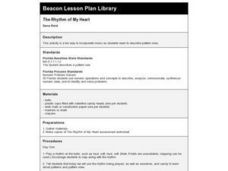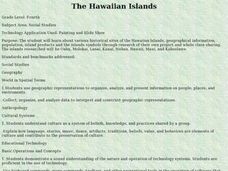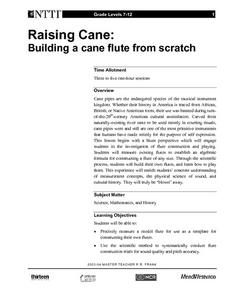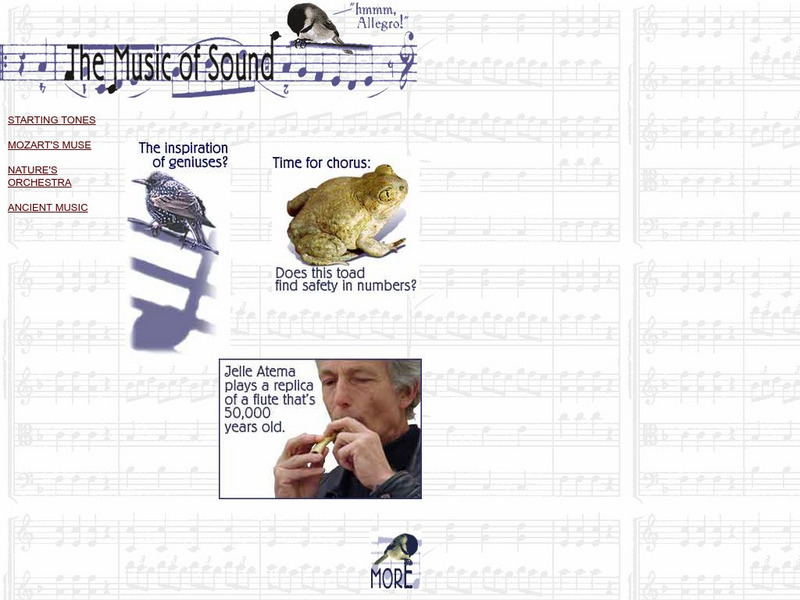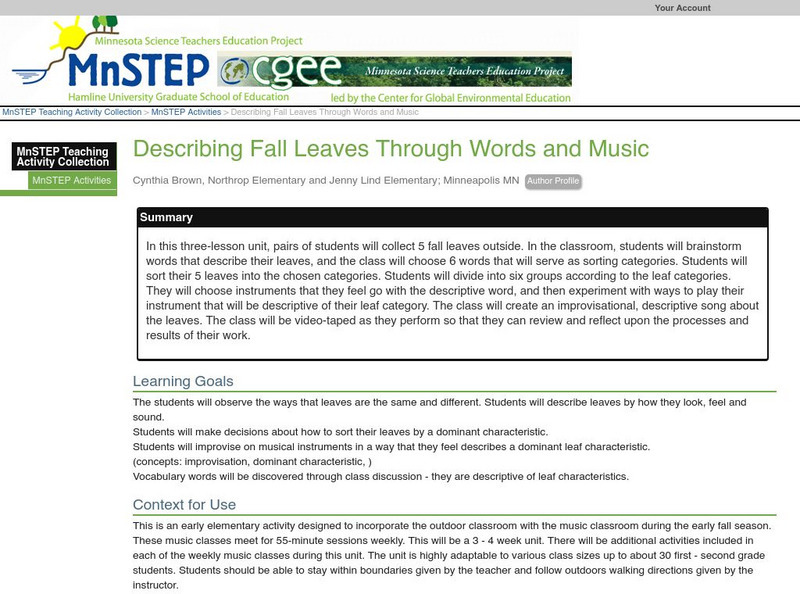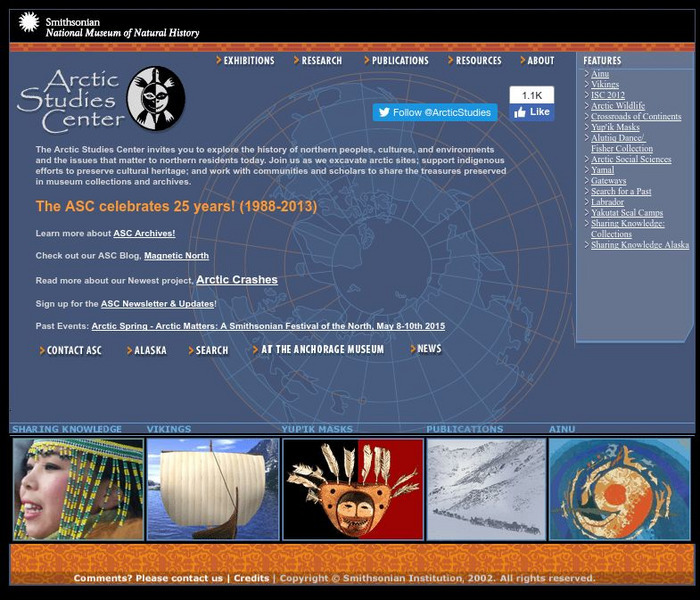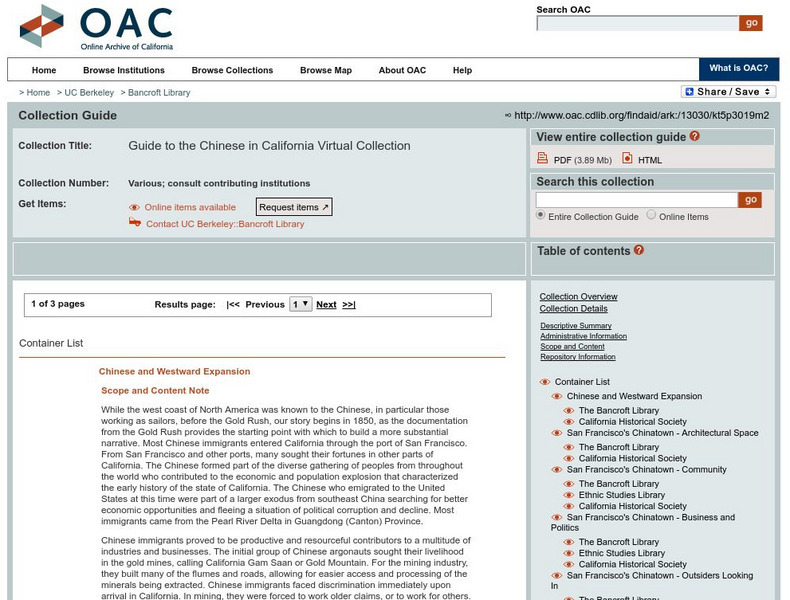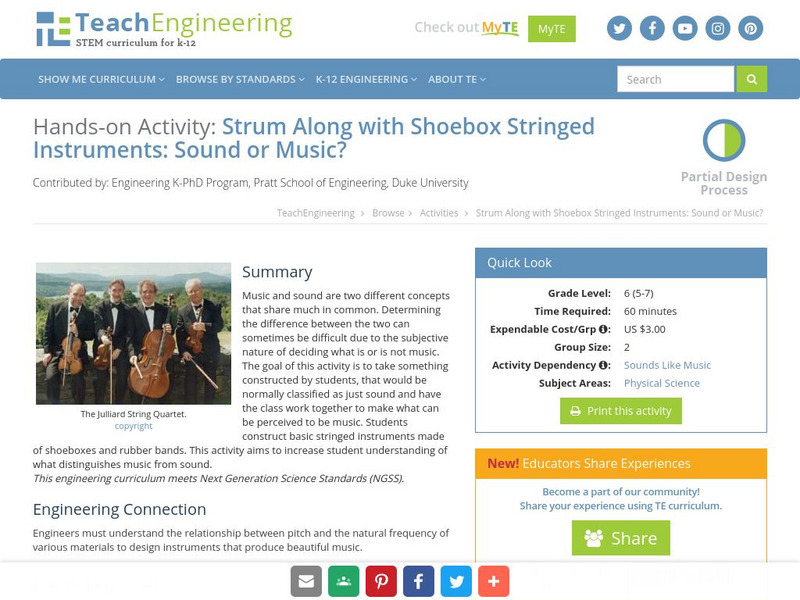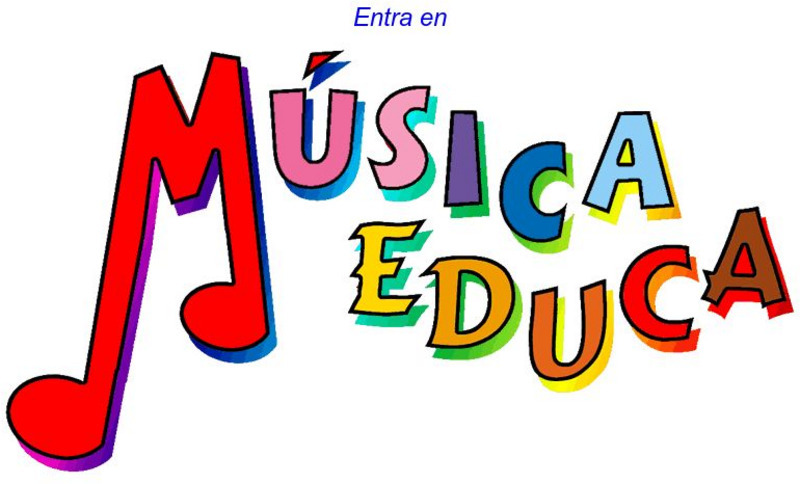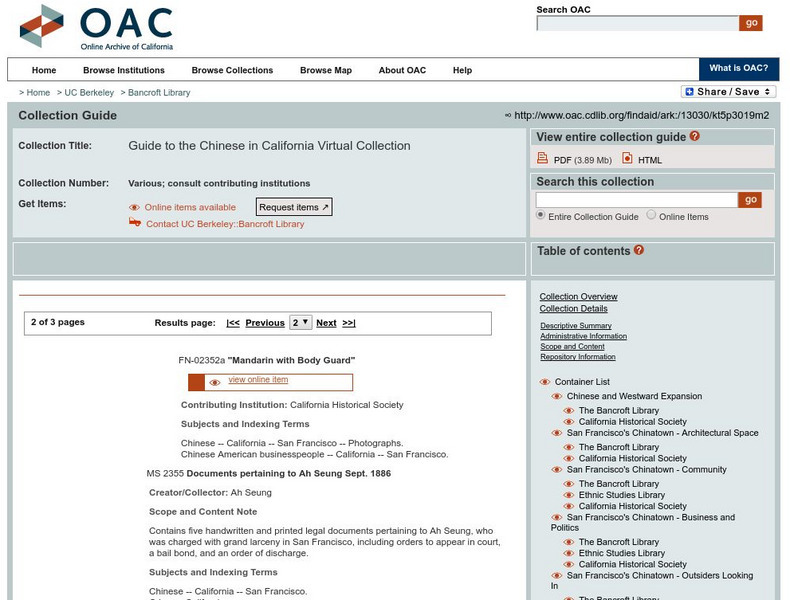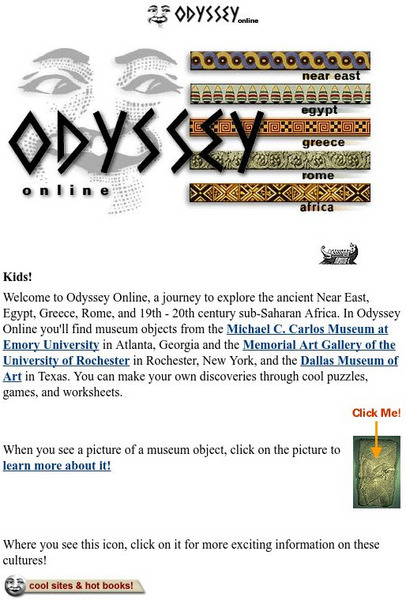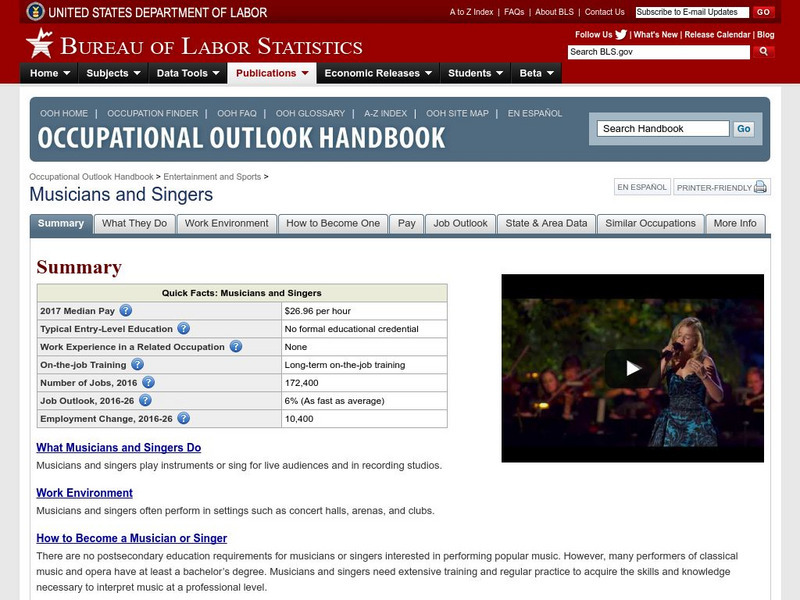Curated OER
The Rhythm of My Heart
First graders describe pattern rules. They use the rhythm being played on a bell and candy hearts to explore patterns and pattern rules. This is an especially good lesson to use around Valentine's Day.
Curated OER
The Hawaiian Islands
Fourth graders present information of people, places, and environments. They collect, organize, and analyze date to use with these representations.
Curated OER
Raising Cane: Building a Cane Flute From Scratch
Eighth graders create their own cane flute. They use a model flute to gain the correct measurements and use the scientific method to construct the flute to have sound quality and pitch accuracy.
Curated OER
Uchiwa Lesson Plan
Students view images from Japan's Summer Festival celebration. They create a uchiwa fan to use while doing the Kuma River Dance.
Curated OER
Violets, Daffodils, Roses and Thorn
Fourth graders complete a variety of exercises and activities surrounding the scientific and artistic properties of the parts and processes of a plant/flower.
Curated OER
Express Yourself: Make Art From Your Ideas
Learners analyze and discuss various sculptures by the artist Andrea Arroyo. They discuss ways artists use symbols to express abstract ideas, design and create a plasticine plaque, and write a journal response.
PBS
Pbs: Nature: Song of the Earth With David Attenborough
Explore the sounds of nature and how they connect with music. Investigates what purpose music serves through nature and what it means.
University of Wisconsin
The Why Files: The Music of Sound
This resource from the University of Wisconsin explores the relationship between music and science by exploring bird songs, Mozart, alligator and penguin sounds to name but a few.
Science Education Resource Center at Carleton College
Serc: Describing Fall Leaves Through Words and Music
Young scholars collect, describe, and sort leaves found outside. As a cross-curricular component, they will improvise on musical instruments in a way that they feel describes a dominant leaf characteristic.
Smithsonian Institution
National Museum of Natural History: Arctic Studies Center
Tour this Smithsonian site and learn about the cultures of the North Pacific Rim and arctic wildlife in this site. This site provides virtual tours, videos, and music!
Other
Whitney Museum of American Art: Georgia O'keefe: Abstraction
Find a full-featured analysis of an abstract work by Georgia O'Keeffe that communicates many key elements of her art, such as her use of color, the inspiration she found in nature, and her approach to abstraction. Includes insightful...
Arizona State University
Arizona State University: Natural Horn & Its Technique
Arizona State's descriptions of the horn are broken up by illustrations of the horn, players, and music. There is a big discussion of crooks (not the kind that go to jail), but the kind that are made when you bend metal! The author notes...
California Digital Library
Library of Congress: San Francisco's Chinatown: Outsiders Looking In
The Chinese in California, 1850-1925 illustrates nineteenth and early twentieth century Chinese immigration to California through about 8,000 images and pages of primary source materials. Included are photographs, original art, cartoons...
TeachEngineering
Teach Engineering: Strum Along
Music and sound are two different concepts that share much in common. Determining the difference between the two can sometimes be difficult due to the subjective nature of deciding what is or is not music. The goal of this activity is to...
Ministerio de Educación (Spain)
Ministerio De Educacion: Musica Educa (Spanish)
This site is about music in general to be viewed by children as something natural and easily accessible. It contains various interactive activities with sound files and also an application to color.
TED Talks
Ted: Ted Ed: The History of Museums
Museums have been a part of human history for over 2,000 years- but they weren't always like the ones we visit today. J.V. Maranto uncovers the evolution of museums, from the first museum in 530 BC (curated by a princes) to PT Barnum's...
California Digital Library
Loc: Chinese in California: Agriculture, Fishing, and Related Industries
The Chinese in California, 1850-1925 illustrates nineteenth and early twentieth century Chinese immigration to California through about 8,000 images and pages of primary source materials. Included are photographs, original art, cartoons...
Encyclopedia Britannica
Encyclopedia Britannica: Romanticism
This is an encyclopedia article which defines the period of Romanticism from the late 18th to the mid-19th century. It describes the characteristics of Romanticism in general and in literature, visual arts, and music.
Emory University
Emory University: Odyssey Online
Odyssey Online is a resource for both students and teachers as they explore world mythology in reading, writing, history, and art classes. Providing sections on Near Eastern, Egyptian, Greek, Roman, and African mythology, Odyssey uses...
PBS
Pbs Learning Media: Everyday Learning
Learning does not take place only in the classroom. Learning occurs naturally, every day! This KET collection uses original animation and wonderful, visual images to introduce basic concepts of math, science, social studies, art, and...
Annenberg Foundation
Annenberg Learner: Part C: Fibonacci Numbers
Look at an interesting application of ratios that demonstrates the amazing patterns that emerge when we examine mathematics. The Fibonacci numbers are found in art, music, and nature.
US Department of Labor
Bureau of Labor Statistics: Musicians, Singers, and Related Workers
An in-depth page covering the nature, training, qualifications, and working conditions of musicians.
ArtsNow
Arts Now Learning: Reading With Cups, and More! [Pdf]
In this lesson, students will explore how music and language arts naturally overlap to promote literacy as they cultivate their creative and critical thinking.
ArtsNow
Arts Now Learning: Reading With Cups, and More! [Pdf]
For this lesson, students will explore how music and language arts naturally overlap to promote literacy as they cultivate their creative and critical thinking.
